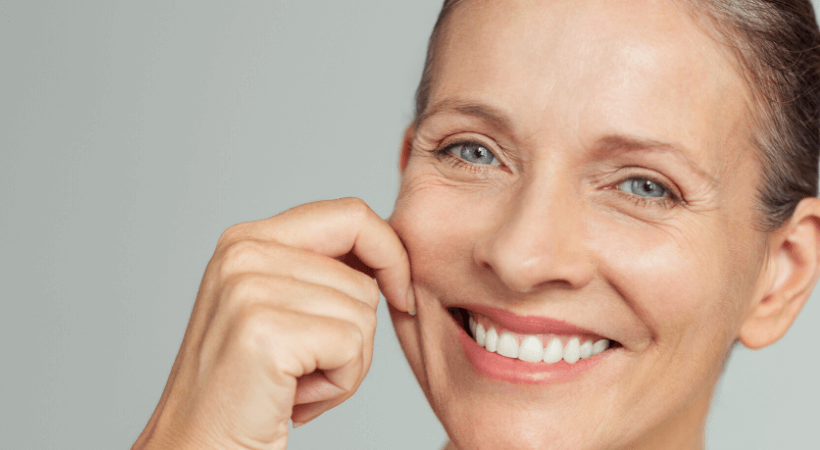Hormones: The Secret to Healthier Skin. In the summer we show more skin and after months of hibernation many are not happy with what they see. Diet, sunblock, and exercise play a major role in making the skin healthier and more resilient, yet many skin functions are under hormonal control.
The following components of skin that keep it moist, plump, healthy and glowing are under hormonal control. Hormones are responsible for making:
- Keratinocytes that preserve against microbial invasion; protect against UV radiation; and minimize heat, solute and water loss.
- Langerhans’ cells that serve a protective immune function
- Melanocytes which gives the skin it’s color or pigment
- Sebaceous glands that lubricates the skin to protect against friction and provide oil to make it more impervious to moisture
- Collagen that gives the skin strength and elasticity
- Hyaluronic acid that enables the skin to retain water to keep your tissues well lubricated and moist.

Together these make up the most abundant and visible organ in your body, your skin. In order for it to function well and look good, you must care for it.
While many creams and potions can be applied to skin to make it look and feel better. The best is having good skin from the inside out by balancing your hormones. Aging of the skin is associated with skin thinning, atrophy, dryness, wrinkling, and delayed wound healing and may be due to lack of some hormones as well as a rise in others.
Melatonin Not Just for Sleep
Melatonin decreases with age as well as with exposure to blue light from electronics such as phones, tablets, computers and television. It has a profound impact on skin. It is a powerful antioxidant that is even better than Vitamin C. A study of postmenopausal women taking melatonin showed that crow’s feet, and skin roughness and dryness were reduced significantly, and skin tonicity was greatly improved with both 2 mg of melatonin taken nightly or a melatonin cream. It’s anti-aging benefits go well beyond a good night’s sleep. Try 2 mg of melatonin at night to reap its sleep, antioxidant and skin benefits.
The Major Ager at Any Age: Cortisol
Stress causes skin to become damaged. At any age, stress increases cortisol which gives rise to excess sebum production or oil. Excess oil clogs pores and that may cause breakouts of acne. Whether cortisol comes from medication or within from stressors that can be physical, mental, toxic, hormonal, infectious or nutritional, the effects if prolonged can cause the skin to become thin. Thinning of the skin, ultimately results in more prominent blood vessels and makes more prominent lines and wrinkles. Cortisol also rises with age and breaks down muscle and bone as well as skin.
This hormone is under your control with lifestyle and diet. Get enough sleep, practice stress management techniques, eat a nutrient rich diet and decrease or eliminate stimulants such as sugar, alcohol and caffeine. Adaptogenic herbs can keep cortisol in check. Stay tuned for an in-depth, interactive online workshop on The Cortisol Solution: The Key to Anti-Aging and Managing Mood, Energy, Weight, Sleep, & Immune System. Send us a note to be on the list for a 50% pre-launch discount.
Estrogen Enhances Skin
Estrogen decreases in menopausal women. It supports collagen production and helps retain skin moisture as well as improve skin thickness. A study showed that after 7 months of hormone replacement therapy, skin elasticity and skin thickness increased.
Estrogen restores skin thickness by increasing collagen synthesis while limiting excessive collagen breakdown. Wrinkling improves since estrogen enhances the structure and synthesis of elastic fibers, collagen type III, and hyaluronic acids. Estrogen also increases water-holding capacity, sebum (oil) production, and barrier function of the skin and alleviates dryness.
Estrogen appears to aid in the prevention of skin aging in several ways. Besides its influence on skin aging, it has been suggested that estrogen increases wound healing.
Progesterone Pounces Wrinkles
Topical 2% progesterone acts primarily in increasing elasticity and firmness in the skin of peri- and postmenopausal women. Result of a study showed a greater reduction in wrinkle counts and wrinkle depth, a greater decrease in nasolabial wrinkle depth and a significantly higher increase in skin firmness in the treatment group.
Thyroid Smooths Skin
Low thyroid hormone can make your skin rough, thin, dry, and scaly. Skin can become puffy pale and cold as well. Sometimes it can even cause decreased sweating as well as a purple rash.
On the other hand, excess thyroid hormone can increase sweating and make your skin red, warm, smooth and thin. The thyroid is a common target of autoimmune disorders which can cause vitiligo which is a loss of skin pigment resulting in white spots.
Your lifestyle such as eating a nutritious diet rich in colorful antioxidant rich fruits and vegetables, getting a good night’s sleep, managing your stress, using sunblock, and not smoking are the basis for great skin and overall health. There are some over the counter solutions, however, balancing some hormones are best handled by an expert. A functional medicine physician will have a more holistic approach to balancing your hormones naturally in a comprehensive way so seek help when you need it.





She is a recognized and award-winning holistic, functional, integrative and anti-aging healthcare practitioner, speaker and author, and has been featured in ABC News, Forbes, WOR Radio and many media outlets to spread the word that you can live younger and healthier at any age.